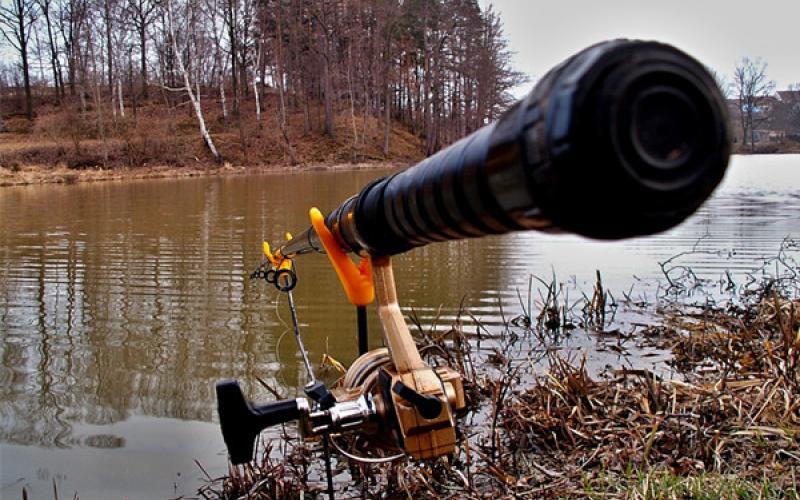Submitted by Anonymous on
Surf Fishing Basics
There’s something awe-inspiring about stepping into the surf and casting out among the waves. Surf fishing is the passion of many anglers who live in areas where they have easy access to the beach, but to the novice, it can seem a bit too specialized to just wade into. In reality, it’s quite simple once you break the process down and make an effort to understand it.
If you’re interested in getting into surf fishing, or even just want to maximize your effectiveness in the water, read on.
Your Rod and Reel
While you don’t have to use extremely specialized equipment for surf fishing, you’ll want to keep a few factors in mind in order to be able to haul in your ideal fish. The first thing is to select a proper rod. For the type of casting you’ll be doing, you definitely want something longer than normal. Something with extreme length can be a bit intimidating to novices, though, but something in the seven to a nine-foot range isn’t too hard to handle. A lot of fishermen will also make sure that their surf rod has a comfortable handle they can grip firmly. If you’re the type that likes to wade farther out to get the farthest cast, you’ll know that waves sometimes get the best of you, and you don’t want to have your hands slip off and have to chase the pole.
The thing to top your rod with while you’re in the water is definitely a spinning reel. Accuracy isn’t quite as important here as it can be in many angling applications, instead, you’ll generally be casting just beyond the breakers. Spinning reels are also easier to handle, and a backlash on your cast can be quite disastrous. The simplicity makes for a much more user-friendly experience in a moving environment.
Accessories
Some people prefer to use waders, others just walk proudly out in their shorts. If you don’t enjoy the ocean water, you might want to look into some specialized wear.
If you’re the type that likes to wade in, water shoes are still a great idea. The extra foot protection is especially helpful on beaches with a lot of rocks.
Fishfinders that you can use in this kind of fishing are pretty rare. If you have a way to protect your phone though you might be able to get a decent view of the sea with a smart fishfinder like the Deeper or iBobber.
The Actual Fishing
One of the most successful setups commonly used in surf fishing is also remarkably simple. You’ll attach your line to a weight, and then use a swivel to attach a hook on a lead. You’ll want the lead to be between six and twenty-four inches or so depending on how long your fishing rod is.
Baiting the hook can be a matter of some contention. A lot of fishermen like to use artificial worms instead of a more natural bait. The tougher ones can last through multiple fish before finally being too chewed to be used anymore. The synthetic baits also get rid of some of the mess associated with your trip. Others will swear by natural baits. Whether it’s sardines, mackerel, or squid, there’s a proponent of it somewhere. The best way to find out is to experiment, each area is different. It’s usually a safe bet that any common shellfish in the area will be taken quickly by the fish.
Some people like to run a high-low rig as well, with two hooks above a rounded weight on the bottom. These can be a bit more cumbersome to cast with but your odds improve by quite a bit at peak feeding times. Fish like barred surf perch will hit constantly at peak times, and it can be irritating to keep reeling in undersized fish as soon as your bait hits the water. With two hooks you’re less likely to not get anything worth the time to bring up.
So Get out There Every beach is different, and it always pays to do a little bit of research before you go out. Once you’ve got your targeted fish in mind, the rest is a simple matter. There’s no reason not to give surf fishing a shot, even if you don’t have specialized equipment. All you’ll need is some friends and your fishing rods at the beach to have a great time and bring in some supper.












